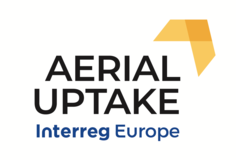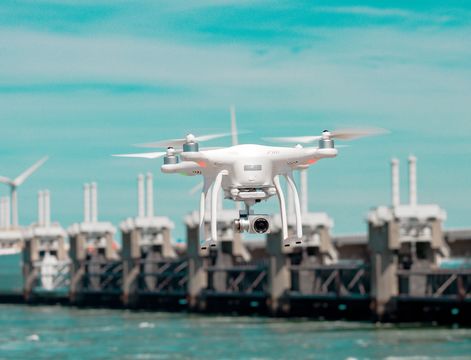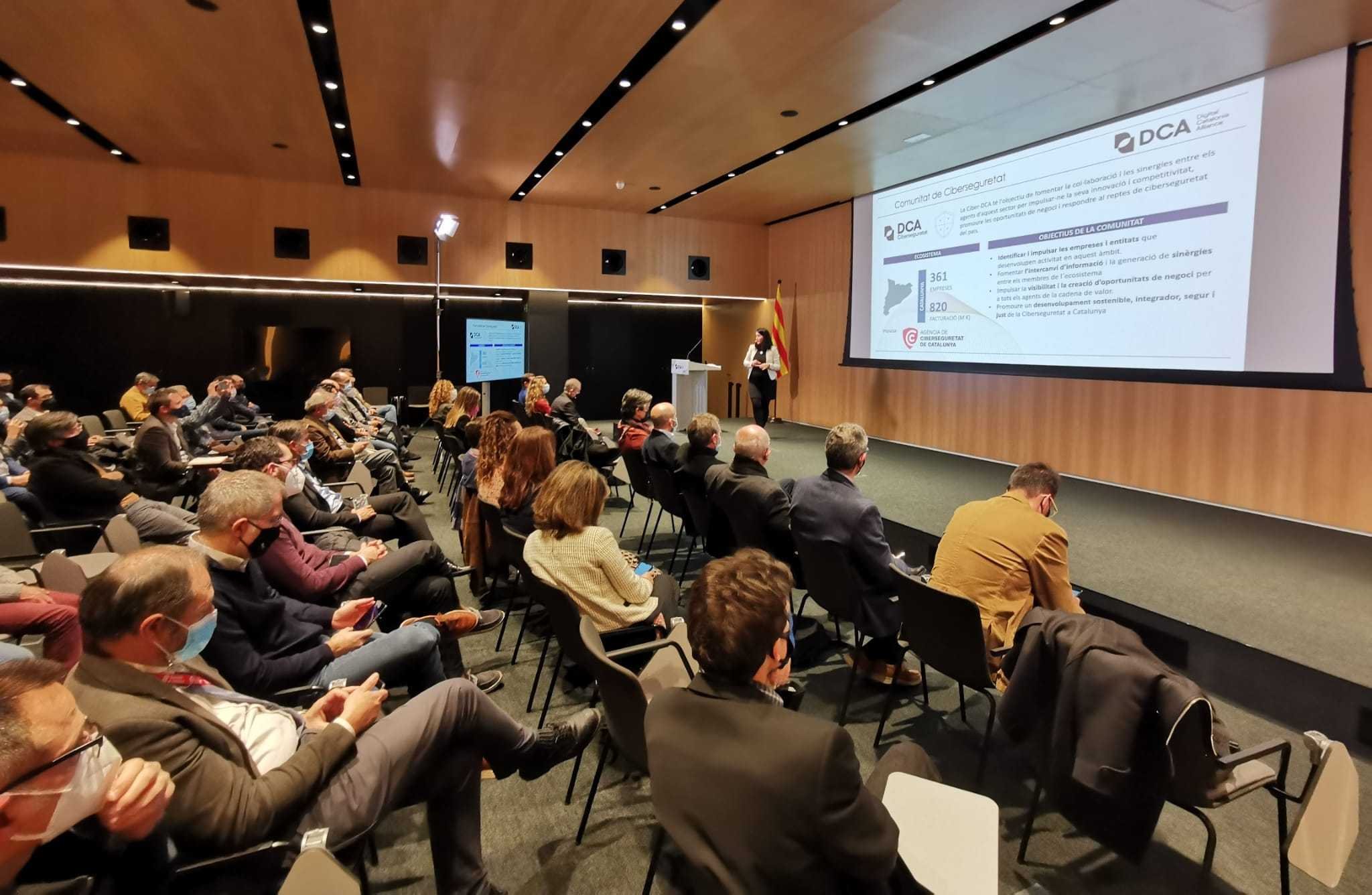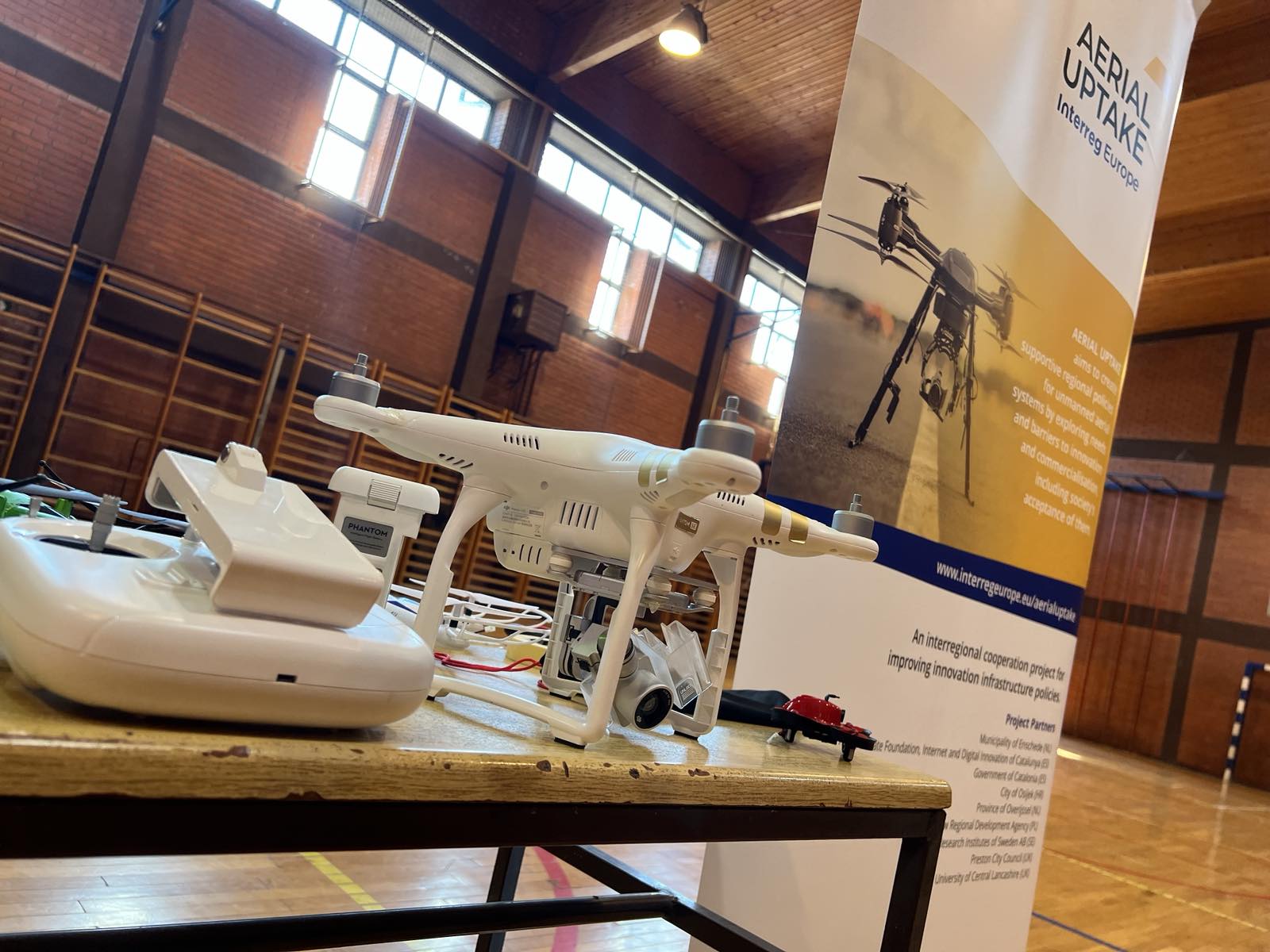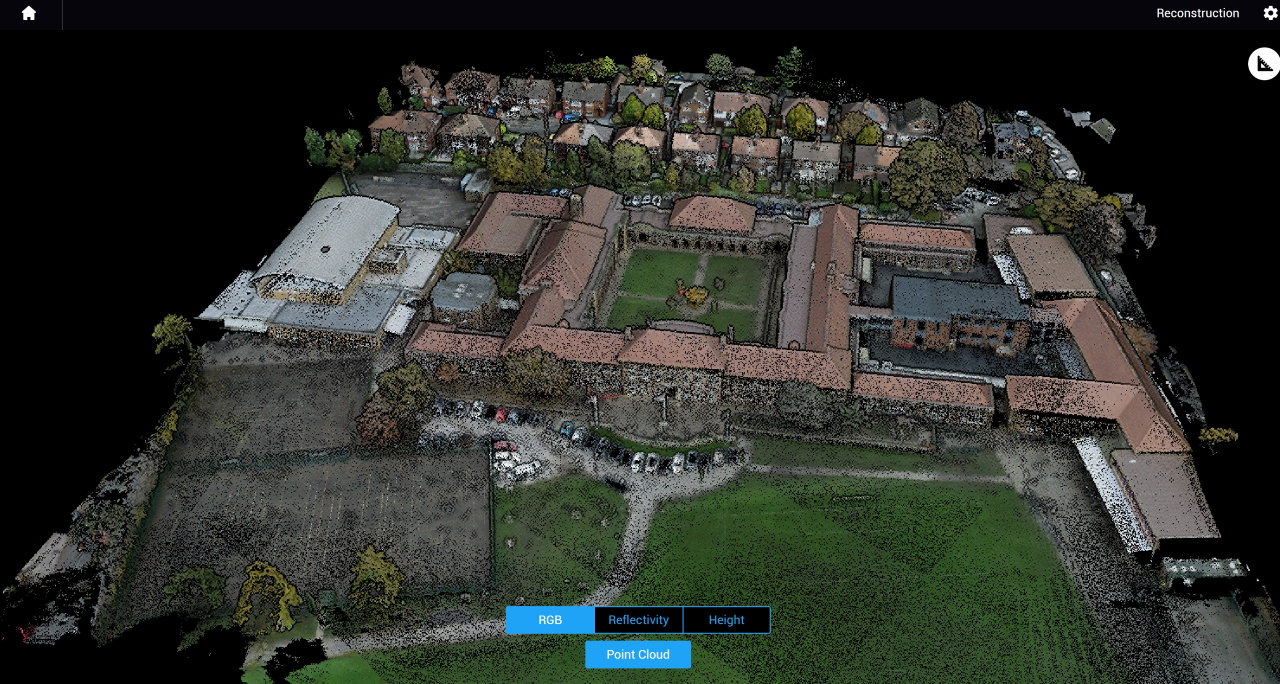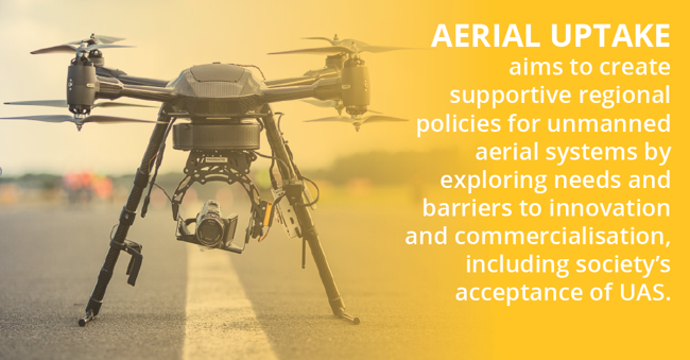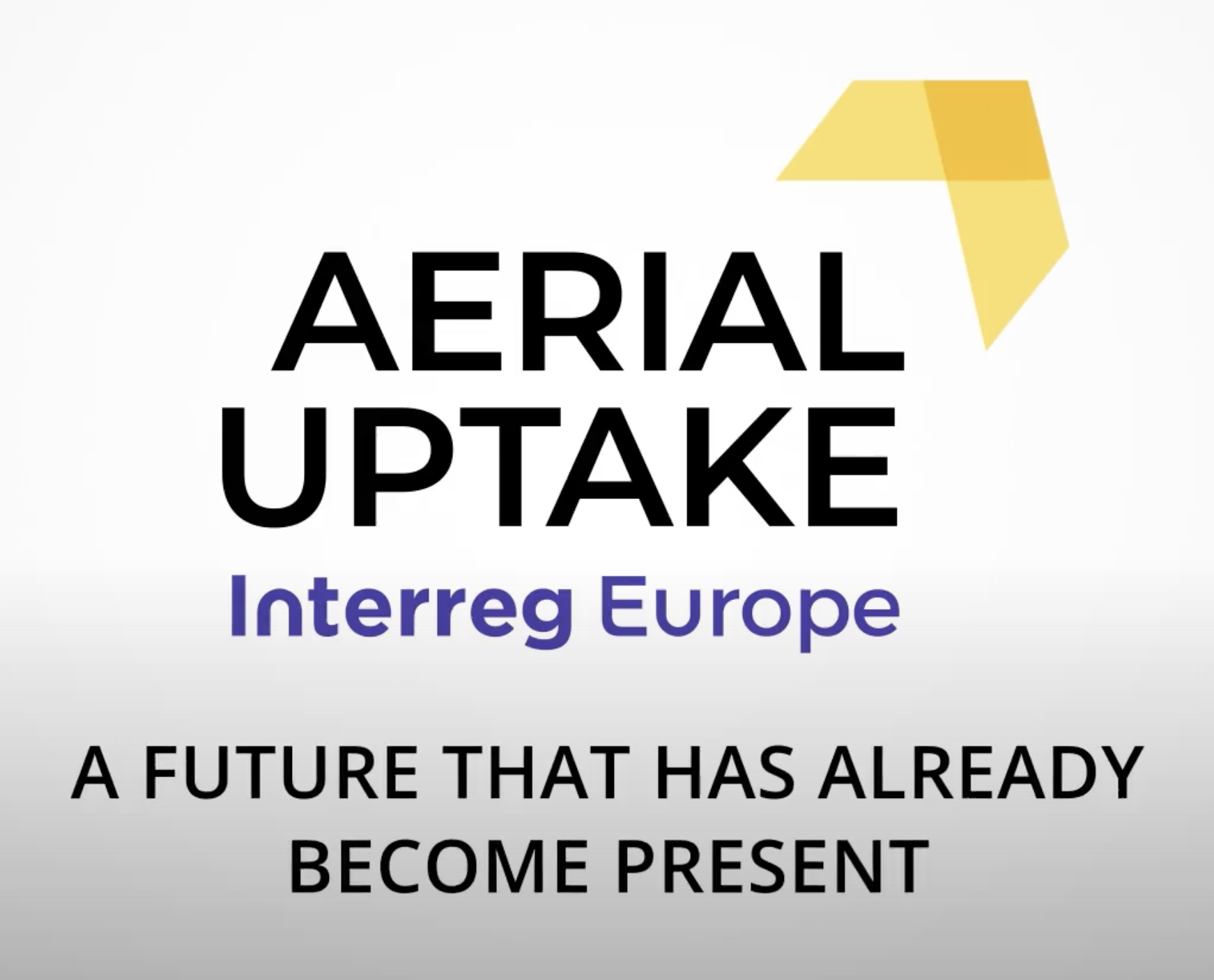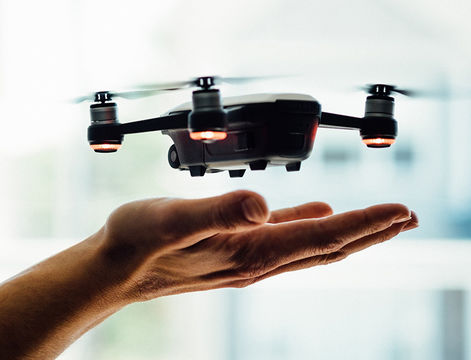Are you afraid of drones?
Are you afraid of drones? Or do you think that they will play an important role in the next technological revolution making our everyday life safer and more comfortable? Let’s see what the citizens of the Aerial Uptake regions say about that!
In Semester 2, the Aerial Uptake partnership took an important step to better understand the local needs towards UAS (unmanned aerial system), also commonly known as drones. In each region, a needs analysis was prepared based on a jointly developed survey. To get a comprehensive overview, governmental, academic and industry actors were asked about policy, innovation and market aspects. On top of that, citizens were also approached with questions to better understand the general attitude and public acceptance of drones. Let’s take a look on what they shared!

Lancashire (UK):
The Lancashire region finds it encouraging that the survey shows that the general attitude to drones from the public is very positive on the whole. However, the picture is more mixed when given specific scenarios of drone use such as delivering items, helping firefighters or facilitating more efficient infrastructure inspections. When asked how they would feel seeing a drone of this nature: 22% had a positive attitude, 37% were neutral and 42% had a negative response. Still, majority of the respondents would be curious, interested or excited seeing a drone flying close to where they live. However, participants described concerns around drones impacting on their own privacy, with invasion of space and capturing images without permission a recurring theme.

Catalonia (ES):
In Catalonia, most of the citizens’ attitude feedbacks on seeing a flying drone near them were passive or negative. Our colleagues suggest that the reasons behind are the concern of the respondents in terms of privacy, security and use of the drones. Also, the unawareness about the drone regulations may influence the general attitude negatively. The results show that there is an absolute lack of awareness of the applicable laws and drone regulation in Spain and particularly in Catalonia.

Rzeszów (PL):
Before conducting the survey, our Polish colleagues had the perception that in the Rzeszów region the vast majority of the public associate drones only as a tool for taking photos and videos threatening their privacy. This idea was backed by the high level of searches about the possibility of knocking down, shooting down or disrupting a drone's signal. However, the results turned out to be surprising: nearly 34% of respondents indicated their general attitude towards drones as very positive, while only less than 3% as very negative. Still, the respondents are afraid of unqualified operators who can cause damage and disturb their privacy. Transparency is an important requirement in Rzeszów as 70% of respondents would like to know who is flying an unmanned aerial system and for what purpose.

Overijssel (NL):
In the Overijssel region, the majority of citizens indicated a somewhat positive to very positive attitude, but still, two-thirds of the responders would react negatively when a drone would fly about 100 meters away from them while on a walk. What can we do to make the Dutch citizens feel more positive toward drones? Based on the feedbacks, the followings could help: let them know who is flying the drone (28%), securing privacy (24%) and the possibility to create no-fly zones (16%).

Osijek (HR):
The citizens of the Croatian Osijek add further aspects to understanding the public acceptance of drones. They also have positive attitudes in general, but many similar concerns were raised linked to privacy and transparency, and also new ones such as the safety and well-being of birds living in the area. The voices of the citizens are heard. In the second part of the project, Aerial Uptake partners will work on defining actions for improved policies, leading to a safer and more transparent use of drones with properly responding to the privacy concerns.
